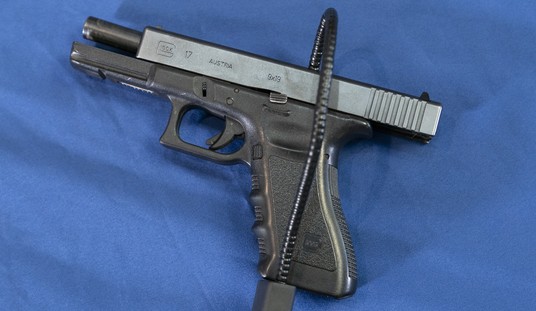Hunter Biden may have gotten a pass from his dad for possessing a gun while an unlawful user of crack cocaine, but the elder Biden hasn't thrown a lifeline to a Pennsylvania man who spent six months in federal prison after pleading guilty to owning guns while regularly smoking pot.
Erik Harris took a plea deal in late 2021 on the condition that he'd be allowed to appeal his conviction, and his case has been winding its way through the federal judiciary ever since. On Monday, a three-judge panel on the Third Circuit Court of Appeals heard oral arguments in his case, but a majority of the judges seemed to greet his attorney's arguments with skepticism.
His attorney Renee Pietropaolo told the court Monday that when applied to a marijuana user like Harris, who was not intoxicated at the time of possession, as charged, the existing disarmament law is “so broad, it waters down the Second Amendment right” and “results in unreviewable deference to legislature.”
Challenging that assertion, U.S. Circuit Judge Stephanos Bibas suggested that regardless of when he was high, Harris’ habitual marijuana use could be considered enough of a public threat to allow for his disarmament.
“The fact is, this is someone who’s using five days out of seven, right?” said Bibas, a Donald Trump appointee.
“He’s not putting the guns away each time he goes and smokes and then getting them back ... If he’s habitual, why isn’t that enough to say, ‘No, he may not be in possession of guns during this repeated intoxication?'”
“Because that would be leveling up too much in generality,” Pietropaolo replied. “A person who’s intoxicated, we can tie that to the history and tradition. A user of an intoxicant who’s not actively intoxicated, we can’t tie that to the history and tradition.”
Nothing in the record has indicated Harris was intoxicated while in possession of the firearms, Pietropaolo added. “That’s the missing piece here.”
With all due respect to Bibas, the issue isn't how often Harris might have taken a toke or get intoxicated. Under federal law we can get rip-roaring drunk every night of the week and still possess our right to keep and bear arms. It's the fact that Harris was using cannabis that got him in trouble with the feds, and it doesn't matter to the DOJ if he was getting high five nights a week, five times a month, or five times a year.
Pietropaolo is right that the historical tradition of gun ownership in the United States doesn't encompass stripping someone of their Second Amendment rights because they use an intoxicating substance. There's a stronger argument that tradition and history do encompass prohibiting possession or use of a firearm while actively under the influence, but another member of the panel appeared willing to grant the legislative branch broad leeway in determining who can be stripped of their 2A rights.
Also questioning Pietropaolo, U.S. Circuit Judge Cheryl Ann Krause suggested that later clarifications of Bruen’s reach appear to permit certain Second Amendment restrictions that rely on predictive judgments by a legislature.
Pietropaolo disagreed and said that under those same clarifications, Harris cannot constitutionally be disarmed simply because he is at higher risk of possessing a firearm while high on marijuana.
Still, Krause appeared unswayed. Noting that federal courts have reaffirmed felon-in-possession laws and firearms restrictions for the mentally incapacitated, the Barack Obama appointee suggested Pietropaolo’s interpretation of existing precedent may constitute a legal double standard.
“Why doesn’t that tell us that the court is countenancing some categorical predictive judgments subject to an individualized showing on the other end?” Krause asked.
Pietrapaolo responded by noting that when it comes to mental illness, the law requires an individualized adjudication. And when it comes to other intoxicating substances like alcohol, "the founders did not see fit to disarm people who used intoxicants unless they were in a state of intoxication.”
The other wrinkle in the case against Harris is that, while marijuana remains illegal at the federal level, the DOJ has basically turned a blind eye to personal consumption as well as sales and distribution regulated by individual states. Medical marijuana is legal in 38 states, while recreational use is legal in 24 states, and though the DOJ contends that marijuana users are too dangerous to exercise their Second Amendment rights, the federal government doesn't generally go after individuals simply for smoking a bowl or a blunt.
Though Harris didn't possess a medical marijuana card when he was arrested in Pennsylvania in 2021, there are 400,000 Pennsylvanians who do have a card and are still prohibited from possessing a gun. One of them is Warren County, Pennsylvania District Attorney Rob Greene, who's also suing the DOJ over the same statute Harris pled guilty to violating. Greene's case was filed earlier this year and isn't as far along as the appeal launched by Harris, but the issues he raises are still critically important, and will hopefully be a factor in the Third Circuit's decision when it's released next year.









Join the conversation as a VIP Member